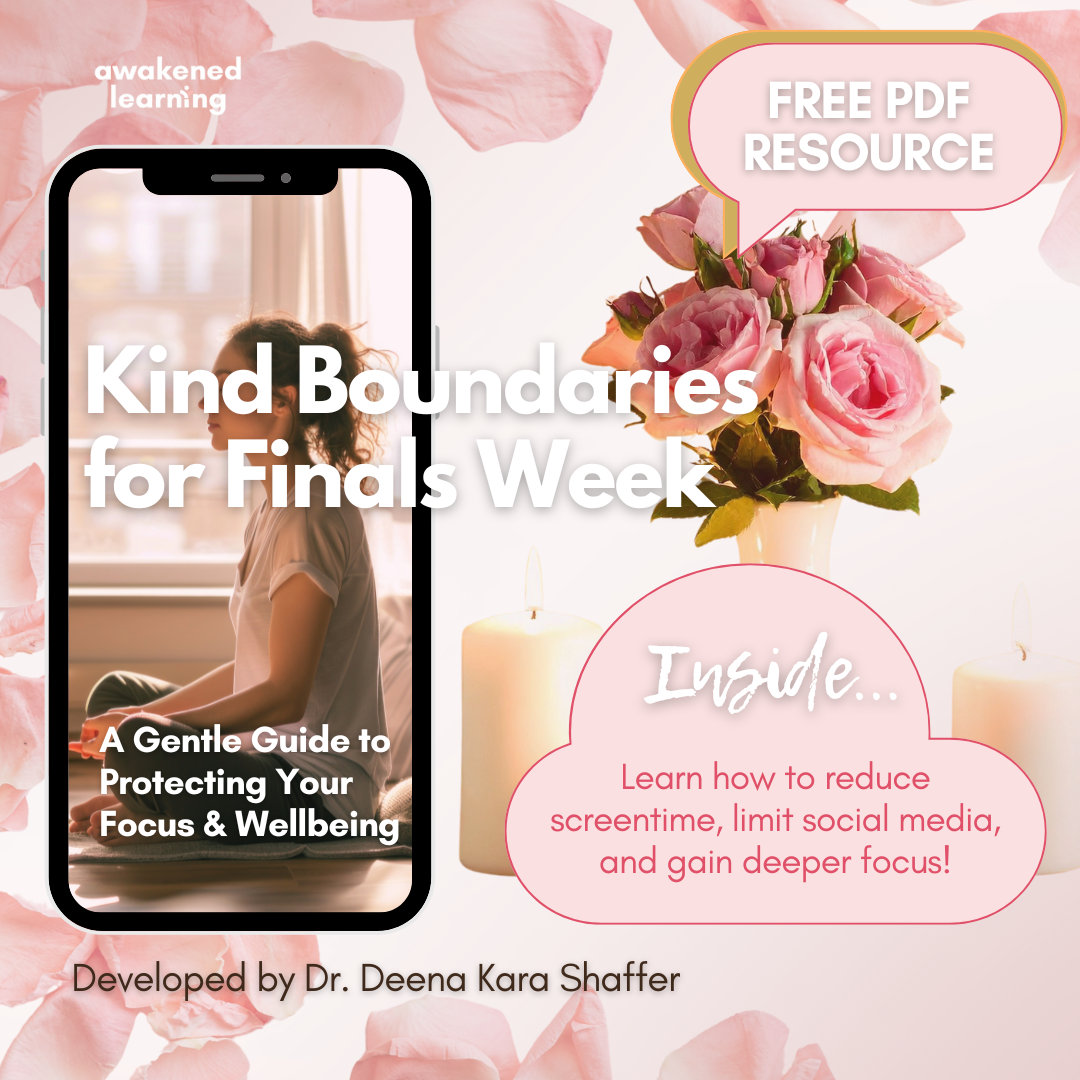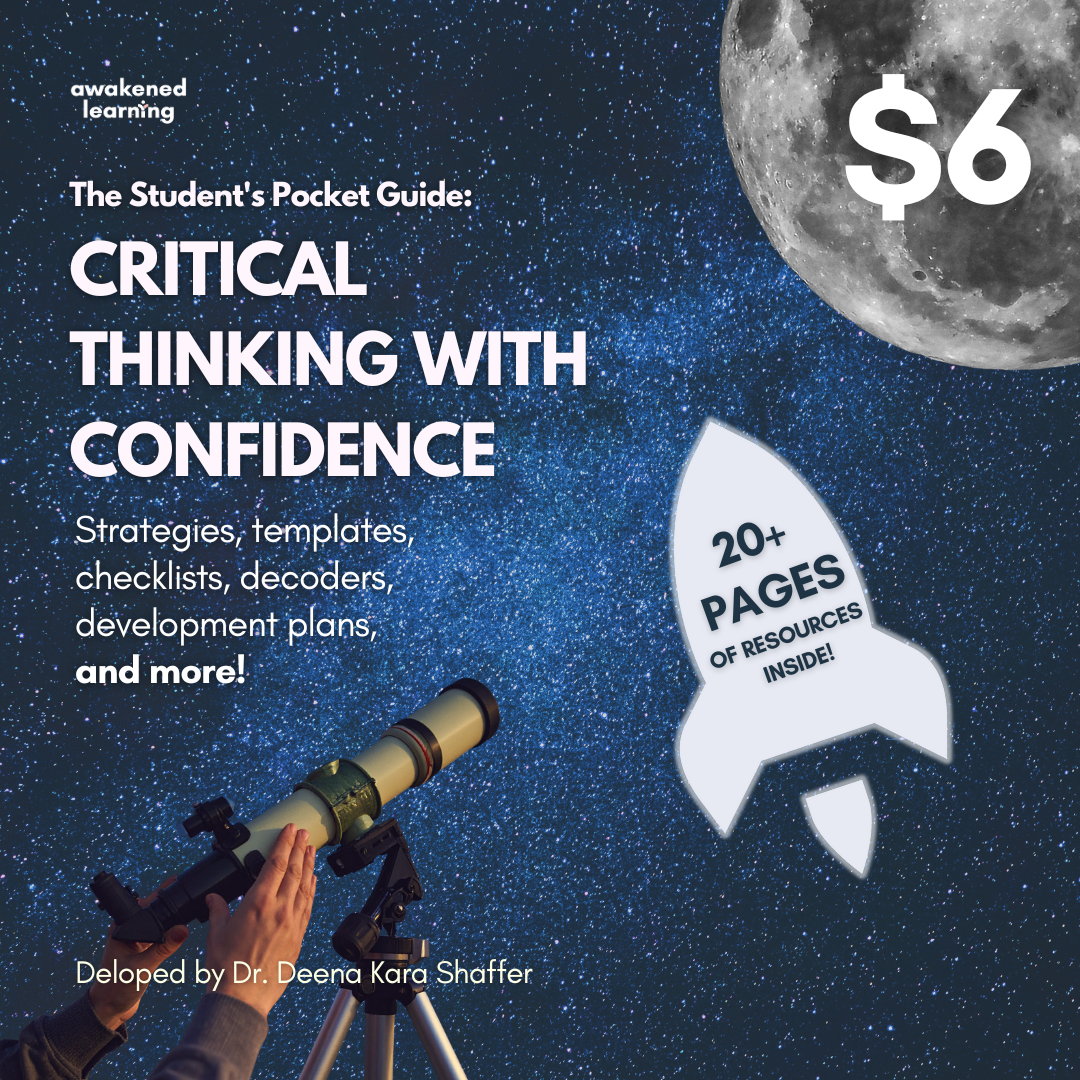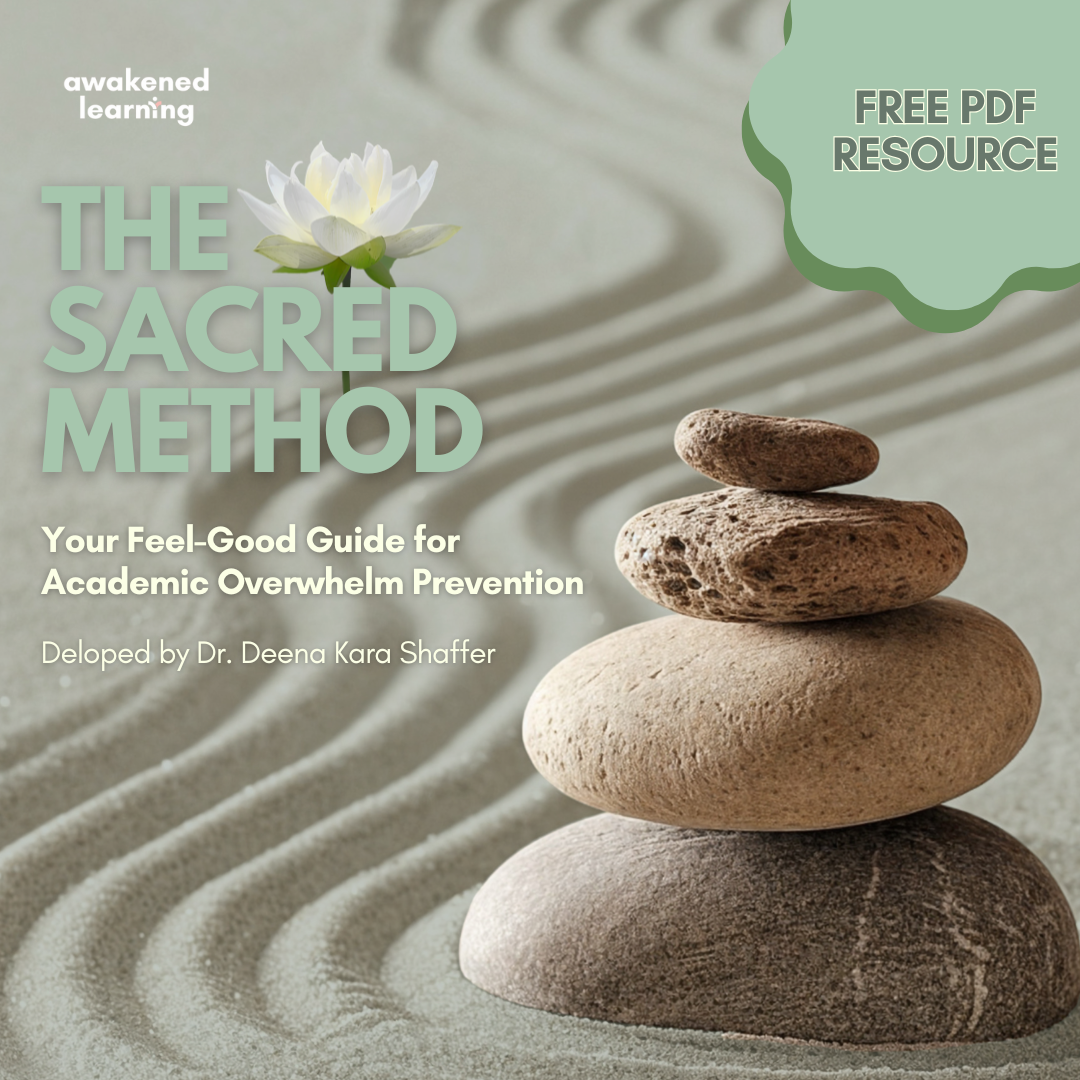
Learning through the holidays
This is about unlearning the idea that academic work has to be all-or-nothing, frantic or absent. It's about discovering what it feels like to engage with your learning life in a way that's alert and calm. A little, but not nothing or everything.

Beat screen time and ace your finals
I asked my Toronto Metropolitan University Learning & Development class to try reducing their social media during finals—this social media boundarying experiment, along with prioritizing sleep, finding physical activity they love to do, reconnecting to the campus community to up their experience of belonging, is all part of their own capstone project. When we got to this portion of the term, the two-week social media detox, the looks on their faces told me everything—they knew something needed to shift, but this felt like a lot to ask. It wasn’t horror…it was relief that they were being required to do something about the social media that has such a powerful grip on their lives…that they don’t really want.

Critical Thinking with Confidence
You can analyze your favourite film and still love it. You can question a theory and still find it useful. You can critique an idea and still respect its contribution.

Overcoming overwhelm with the SACRED method
Overwhelm isn't a time problem. It's a strategy problem. You don't need more hours. You need better boundaries. You don't need to work harder. You need to work kinder. You don't need to push through. You need to pause strategically.

Learning How to Learn
Imagine being highly motivated to build a house but never being taught to use tools. That's what we do to learners every day. An essay is assigned without explaining how to get from today to the deadline; a test date is given without the learning science underneath how to remember and apply information.

School Success Post-September
Here's what I know after years of supporting learners and their families: The real learning year doesn't start in September. It starts now. Right when the novelty wears off and the actual work of learning begins. September is the warm-up. October? That's when we build the practices that actually matter.

The Email That Changed Everything
Here's what nobody tells you: That professor you're terrified of emailing? They've probably sent their own share of nervous emails. They've asked for extensions on article deadlines. They've requested meeting reschedules. They've navigated the awkward dance of professional communication.

The Power of Small Steps
Before you can make room for what you want, you need to get honest about what's already taking up space. But here's the plot twist: not all your "must-dos" are actually musts.

Breaking Brain Barriers
Our culture has taught us that thinking happens in one place: the brain. That "smart" students are those who can sit still, focus intensely, and process information in their heads.
But the head- and heart-bursting work by Annie Murphy Paul in The Extended Mind reveals something fascinating: the most brilliant thinkers throughout history have used the world outside their brains to think.

How Your Child’s Nervous System Actually Works
Some children have experienced trauma, chronic stress, or neurodevelopmental differences that make natural pendulation more challenging. If your child seems unable to access calm states despite your best efforts, this isn't a parenting failure—it's information.
